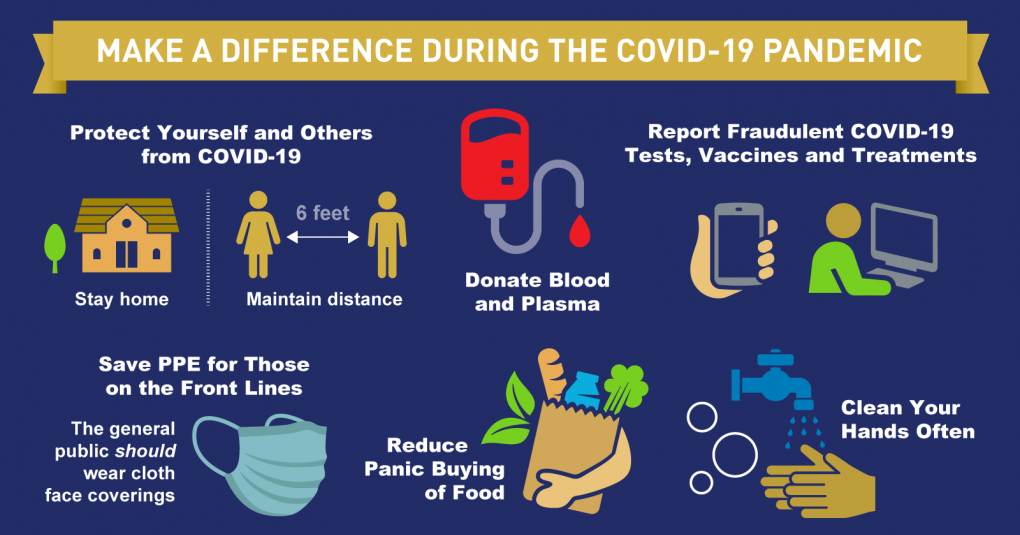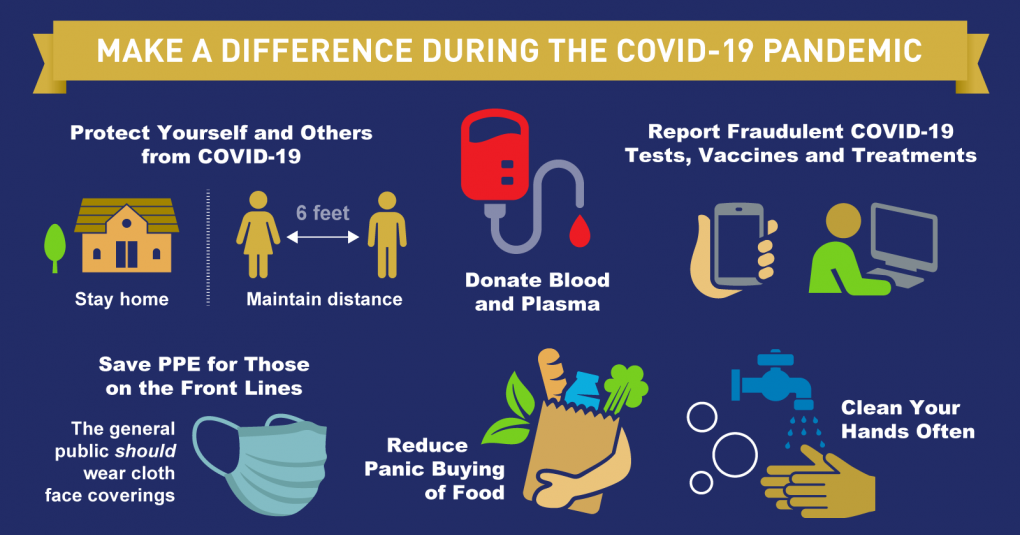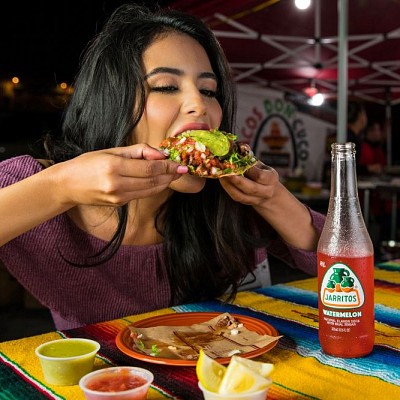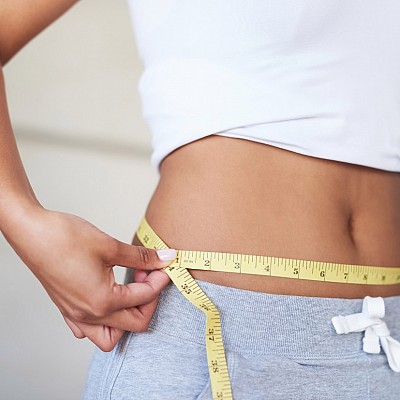The COVID-19 pandemic has created challenges in our everyday lives. As we each do our part to help slow the spread of coronavirus disease, we look to the helpers all around us and wonder if we, too, could do more.
Here are some ways you and your family can help.

Protect Yourself and Others From Coronavirus
Because COVID-19 has never been seen in humans before, there are currently no vaccines to prevent or drugs to treat COVID-19 approved by the U.S. Food and Drug Administration. The best way to prevent illness is to avoid being exposed (or exposing others) to this virus.
How? Stay home as much as possible. Avoid close contact (about 6 feet) with people, even if they don’t appear sick. Some people without symptoms may be able to spread the coronavirus.
Learn how to protect yourself and others from coronavirus.
Donate Blood
Another way to make a difference is to donate blood if you are able. The U.S. blood supply is facing unprecedented challenges and shortages. Donor centers have experienced a dramatic reduction in donations because of social distancing and canceled blood drives.
Maintaining an adequate blood supply is vital to public health. Blood donors help patients of all ages and kinds – accident and burn victims, heart surgery and organ transplant patients, and those battling cancer and other life-threatening conditions. The American Red Cross estimates that every two seconds, someone in the U.S. needs blood.
If You Have Fully Recovered From COVID-19, Donate Plasma
People who have fully recovered from COVID-19 are encouraged to consider donating plasma, which could potentially help save the lives of other COVID-19 patients. COVID-19 patients develop antibodies (proteins that might help fight the infection) in the blood.
COVID-19 convalescent plasma must only be collected from recovered individuals if they are eligible to donate blood. COVID-19 convalescent plasma can be collected from individuals who have had a prior diagnosis of COVID-19, which is documented by a laboratory test, and who meet other qualifications. For example, they must have fully recovered from COVID-19, with complete resolution of symptoms for at least 28 days before donating convalescent plasma, or complete resolutions of symptoms at least 14 days prior to donation plus negative results for COVID-19 either from one or more nasal swab specimens or by a specific diagnostic blood test.
Further investigation is still necessary to determine if convalescent plasma is safe and effective as a treatment for COVID-19, and whether it might shorten the duration of illness, reduce morbidity, or prevent death associated with COVID-19.
The FDA has launched a webpage to guide recovered COVID-19 patients to local blood or plasma collection centers to discuss their eligibility and potentially schedule an appointment to donate.
Report Fraudulent Coronavirus Tests, Vaccines, and Treatments
Some people and companies are marketing products with fraudulent COVID-19 diagnostic, prevention, and treatment claims. Fraudulent COVID-19 products can come in many varieties, including dietary supplements and other foods, as well as products claiming to be tests, drugs, other medical devices, or vaccines. Remember, currently there are no vaccines to prevent or medicines to treat COVID-19 approved by the FDA.
The sale of fraudulent COVID-19 products is a threat to the public health. Consumers and health care professionals can help by reporting suspected fraud to the FDA’s Health Fraud Program or the Office of Criminal Investigations. You can also email [email protected].
If you have a question about a treatment or test being sold online, talk to your health care provider or doctor first. If you have a question about a medication, call your pharmacist or the FDA. The FDA’s Division of Drug Information (DDI) will answer almost any drug question.
Save Personal Protective Equipment for Those on the Front Lines
Don’t buy or stock up on personal protective equipment such as surgical masks and N95 respirators. Surgical masks and N95s should be reserved for use by health care workers, first responders, and other frontline workers whose jobs put them at much greater risk of being infected with COVID-19.
CDC recommends wearing cloth face coverings – not surgical masks or N95 respirators – in public when other social distancing measures are difficult to maintain (for example, at grocery stores and pharmacies) especially in areas of significant community-based transmission of the coronavirus. Wearing cloth face coverings in public may help slow the spread of the virus and help keep people who may have the virus and do not know it from transmitting it to others.
Help Reduce Panic-Buying of Food
As one of the few businesses open nationwide, grocery stores are inundated, and food demand has skyrocketed. Despite this unprecedented spike in demand, there is no need to buy more food than your family can use in the next week or two.
There are no nationwide shortages of food, although inventory of certain foods at your local grocery might be temporarily low before stores can restock, in part because people’s buying choices have changed in some ways during the pandemic. The FDA and federal partners have increased efforts to ensure that Americans can continue to buy food safely and without panic. Watch our 90-second videoExternal Link Disclaimer to learn more about what the FDA is doing about food availability during the COVID-19 pandemic.
The U.S. food supply is safe, both for people and for animals. There is no evidence the coronavirus is transmitted through food, food containers, or food packaging. As always, it’s important to follow the 4 key steps of food safety: wash, separate, cook, and chill.
So, buy one or two weeks’ worth of groceries, and leave some food for others. Shelves will be replenished.
Clean Your Hands Often
Last, but not least, you can protect yourself and your family from coronavirus with simple hygiene: washing your hands.
Wash your hands regularly with soap and water for 20 seconds – especially after going to the bathroom, before eating, and after coughing, sneezing, or blowing your nose. Learn how to wash your hands to prevent the spread of coronavirus and other illnesses.
If soap and water are not available, CDC recommends that consumers use alcohol-based hand sanitizers containing at least 60% alcohol. Learn more about using hand sanitizer safely here.
For more information on the coronavirus visit:






































